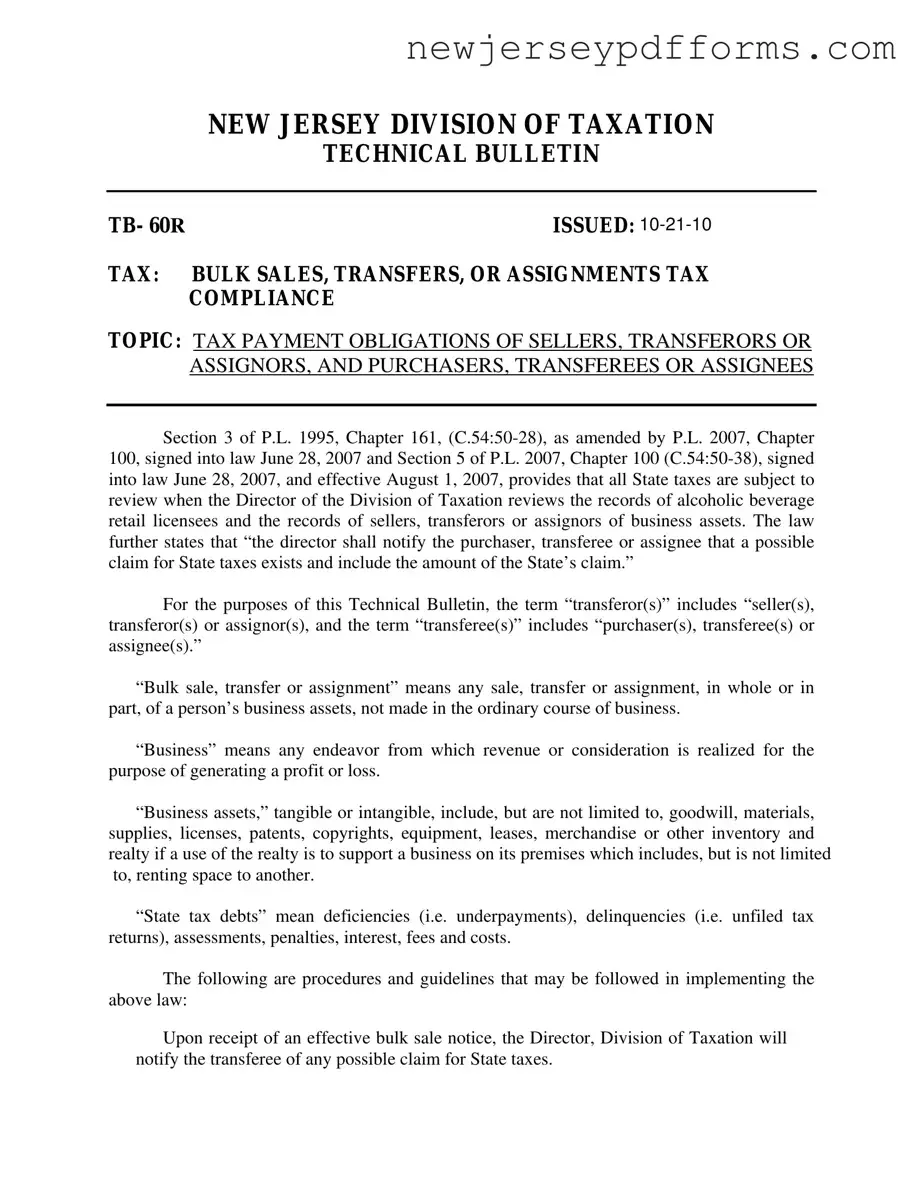What is the purpose of the Asset NJ form?
The Asset NJ form, specifically known as the Asset Transfer Tax Declaration, serves to provide the New Jersey Division of Taxation with essential information regarding the transfer of business assets. This form is critical in assessing any potential tax liabilities associated with the transaction, ensuring compliance with state tax laws. By completing this form, both sellers and purchasers can clarify the tax implications of the transfer and avoid future complications.
Who needs to complete the Asset NJ form?
The Asset NJ form must be completed by the transferor, which includes sellers, transferors, or assignors of business assets. Additionally, the transferee, or purchaser, should be aware of the requirements and implications of this form. It is essential for both parties to understand their responsibilities in reporting and managing any state tax debts that may arise from the asset transfer.
What information is required on the Asset NJ form?
The form requires various details, including the names and identification numbers of both the seller and purchaser, the type of business entity involved, and specific financial calculations related to the transaction. These calculations include the consideration or purchase price, settlement charges, cost after depreciation, and any gains or losses realized from the transfer. Accurate information is vital to ensure proper tax assessment and compliance.
How does the escrow process work in relation to the Asset NJ form?
Upon the submission of the Asset NJ form, the New Jersey Division of Taxation will review the transferor's tax account. If any outstanding state tax debts are identified, an escrow amount will be determined. This escrow will be held by the attorney or designee of the transferee at the time of closing the transaction. The funds in escrow will cover any potential tax liabilities, ensuring that the state’s interests are protected during the transfer.
What happens if the transferor has no state tax debts?
If the transferor has no outstanding state tax debts, the Division of Taxation will issue a letter of clearance to the transferee. This letter allows for the release of any previously requested escrow back to the transferor. However, it is important to note that this clearance does not absolve the transferor from any future tax liabilities that may arise from audits or reviews of their financial records.
What is the timeline for submitting the Asset NJ form?
The Asset NJ form must be filed at least ten days before the proposed transaction closes. This timeline is crucial, as it allows the Division of Taxation sufficient time to review the information and determine any potential state tax claims. Timely submission helps facilitate a smoother transaction and reduces the risk of complications during the closing process.
Can the estimated tax on the gain be adjusted after filing the form?
Yes, the estimated tax on the gain can be adjusted after the submission of the Asset NJ form. If the transferor provides additional information that affects the calculation of the gain, the Division of Taxation may reconsider the escrow amount. This flexibility is designed to ensure that the escrow accurately reflects the tax obligations associated with the asset transfer.
What should I do if I have further questions about the Asset NJ form?
If you have additional questions or need clarification regarding the Asset NJ form, it is advisable to contact the New Jersey Division of Taxation directly. They can provide guidance tailored to your specific situation and help ensure that you understand your obligations and rights throughout the asset transfer process.

